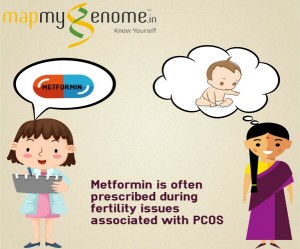The Mother of All Issues: Fertility
Nov 20, 2015
7346 Views
India has a population of 1,300, 212, 602 this year, with thousands of new births every second. Then who would believe, ‘around 15 percent of the Indian population, both male and female, are infertile.’ Yet, it is true – fertility has become the mother of all issues.
A large number of diseases today have occurred and are related to the change in lifestyle and environment. Some of them were not known until a few decades ago. PCOS (Polycystic Ovarian Syndrome) is one example among many; affecting 1 in 15 women worldwide. It has become such a crucial issue in young women and fertility, that its existence cannot be ignored anymore.
It never is easy to tackle a problem that you didn’t know existed. Hence, unique problems require unique solutions. Scientists found a commonly used drug to start treating women with PCOS. Metformin reduces blood sugar levels and is approved by the FDA for treatment of type 2 diabetes. In women with infertility due to PCOS, trials found metformin plus Clomid to be more effective than Clomid alone in ovulation induction. Continued metformin treatment may establish regular menstrual cycles. For most women with PCOS trying to conceive, the first medication option to induce ovulation is still Clomid. However, metformin is arguably the first choice in women with impaired glucose tolerance and certainly in women with type 2 diabetes.

How does it work?
Metformin has many actions, the main being suppression of endogenous glucose production by the liver. Metformin does not cause hypoglycemia, weight gain, unfavorable alteration of lipids, nor increase insulin secretion.
Unlike drugs such as Avandia, metformin does not cause weight gain, fluid retention, or potential idiosyncratic hepatotoxicity. Instead, metformin improves the effectiveness of insulin while maintaining or even decreasing insulin levels. Metformin decreases both basal and postprandial glucose levels, without the danger of hypoglycemia. Glucophage promotes weight loss and favorable changes in the lipid profile.
Possible side effects
Metformin is a very safe medication when used properly and given to healthy women during fertility treatment. Gastrointestinal side effects such as diarrhea or nausea are initially common, but usually subside after a while. Reduced appetite, metallic taste in the mouth and decrease in Vitamin B12 levels are some of the other known issues. Research shows taking Glucophage with food and slowly building up to the target dosage of 1,500 to 2,000 mg total per day can mitigate these effects.
Women with liver dysfunction, excessive alcohol intake, or severe illness are advised not to take metformin.
Does metformin work for you?
Recent research reveals that our genes play a big role in determining our response to metformin. MapmyGenome offers two tests Genomepatri and NIPT that screen for metformin response, among others. This can help save time and costs during treatments.
Genetic Tests Available
Our comprehensive personal genomics test Genomepatri gives your genetic predisposition to 100 plus conditions, genetic counseling and an actionable recommendations report. If there is a family history and you are worried about inheriting a genetic risk, you can consult with our genetic counselors.
If you are looking for further information on Genomepatri, our executives can help you. Call 1800-102-4595 or write to info@mapmygenome.in to learn more. Today!


